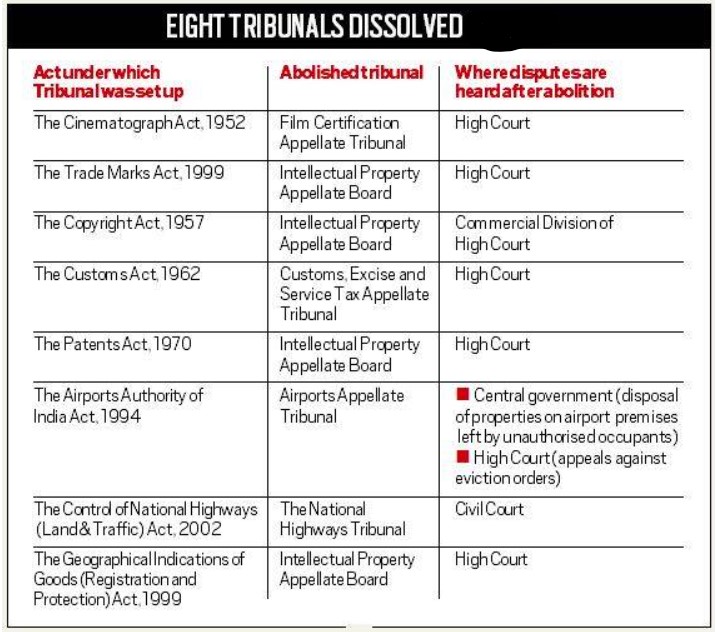900 319 0030
enquiry@shankarias.in
Why in news?
The Lok Sabha recently passed the Tribunals Reforms Bill, 2021to dissolve at least eight tribunals.
What is the Bill about?

What are the key provisions?
Why did government dissolve the tribunals?
What are the concerns?
Sources: PRSIndia, The Indian Express, The Hindu